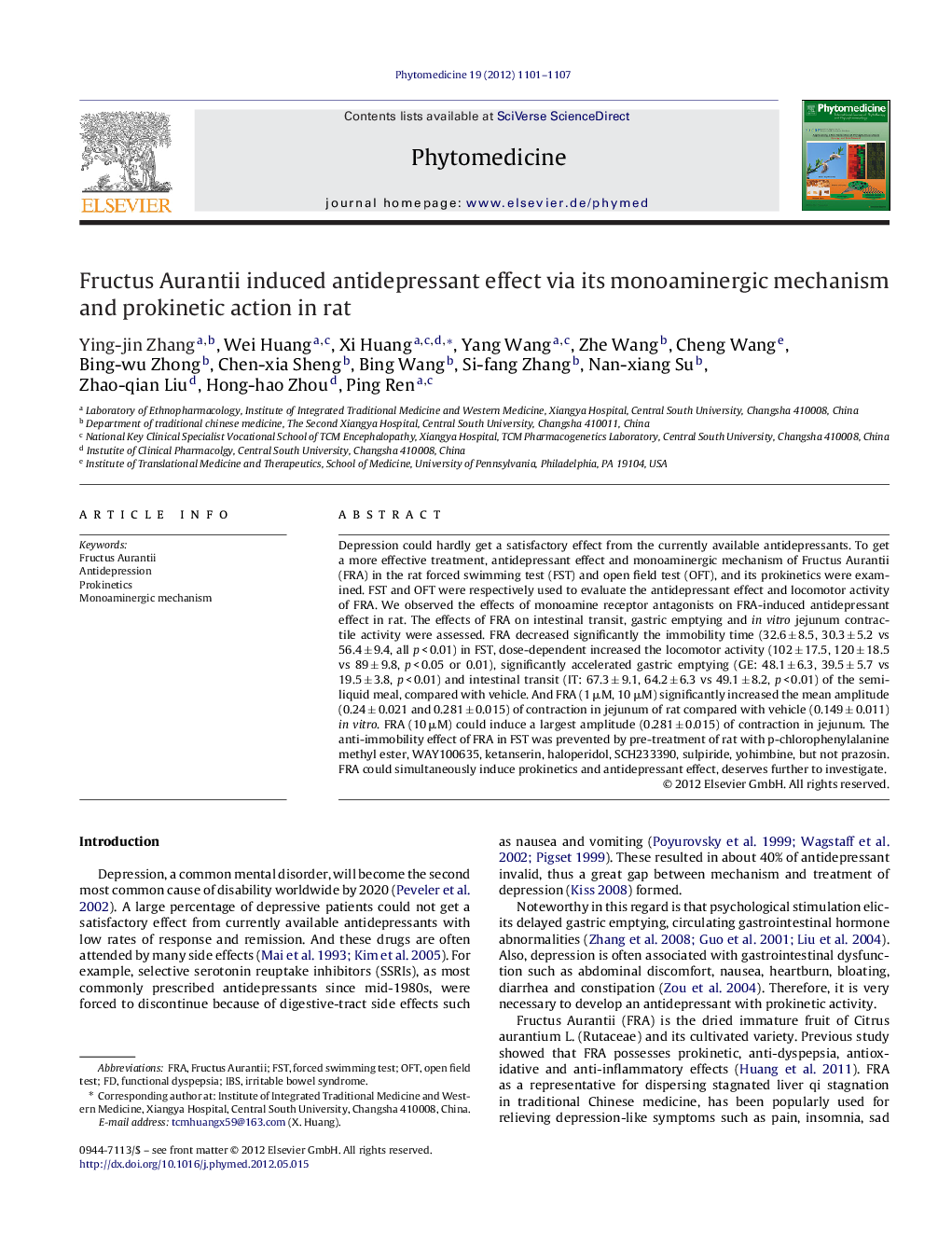| Article ID | Journal | Published Year | Pages | File Type |
|---|---|---|---|---|
| 2496727 | Phytomedicine | 2012 | 7 Pages |
Depression could hardly get a satisfactory effect from the currently available antidepressants. To get a more effective treatment, antidepressant effect and monoaminergic mechanism of Fructus Aurantii (FRA) in the rat forced swimming test (FST) and open field test (OFT), and its prokinetics were examined. FST and OFT were respectively used to evaluate the antidepressant effect and locomotor activity of FRA. We observed the effects of monoamine receptor antagonists on FRA-induced antidepressant effect in rat. The effects of FRA on intestinal transit, gastric emptying and in vitro jejunum contractile activity were assessed. FRA decreased significantly the immobility time (32.6 ± 8.5, 30.3 ± 5.2 vs 56.4 ± 9.4, all p < 0.01) in FST, dose-dependent increased the locomotor activity (102 ± 17.5, 120 ± 18.5 vs 89 ± 9.8, p < 0.05 or 0.01), significantly accelerated gastric emptying (GE: 48.1 ± 6.3, 39.5 ± 5.7 vs 19.5 ± 3.8, p < 0.01) and intestinal transit (IT: 67.3 ± 9.1, 64.2 ± 6.3 vs 49.1 ± 8.2, p < 0.01) of the semi-liquid meal, compared with vehicle. And FRA (1 μM, 10 μM) significantly increased the mean amplitude (0.24 ± 0.021 and 0.281 ± 0.015) of contraction in jejunum of rat compared with vehicle (0.149 ± 0.011) in vitro. FRA (10 μM) could induce a largest amplitude (0.281 ± 0.015) of contraction in jejunum. The anti-immobility effect of FRA in FST was prevented by pre-treatment of rat with p-chlorophenylalanine methyl ester, WAY100635, ketanserin, haloperidol, SCH233390, sulpiride, yohimbine, but not prazosin. FRA could simultaneously induce prokinetics and antidepressant effect, deserves further to investigate.
